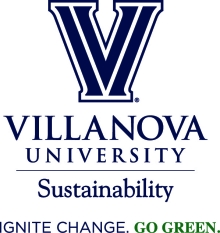Green Lab Certification

Green Lab certification gives recognition to those who are helping to make their lab area safer for people and the greater environment. Born out of a partnership between Environmental Health and Safety, the Office of Sustainability, and Villanova lab representatives, the certification is meant to unite all three efforts to improve lab safety and sustainability, without compromising lab productivity. Labs that achieve Green Lab certification will complete an eight category checklist, and implement enough sustainable and safety changes to meet the program requirements. All research and classroom labs are qualified for Green Lab certification. Certification is valid for two years, requiring reapplication to keep certification.
To complete certification, a lab must identify a Green Lab Champion (GLC) who will lead the lab's certification efforts. The GLC will coordinate with lab members to identify enough achievable credits to meet the program requirements. Once a lab has implemented its qualifying credits, the GLC is responsible for getting signatures from all lab members (or instructors in the case of classroom labs), confirming their participation in the Green Labs program and support for the lab's new efforts. Completed applications are submitted to sustainability@villanova.edu for review. Labs that have completed the minimum number of credits are titled as a Green Lab and given a sticker for their door and recognition throughout campus. During summer lab inspections, members of the Green Lab Committee will review your application and confirm all credit intentions have been meet.
Why should you participate in green labs?
Save money: Many credits will save your lab money year after year.
Distinction: Green Lab certification provides your lab with distinction that may help in grant applications.
Safer working environment: Keeping track of and reducing harmful chemical usage can improve your lab safety.
Reduce environmental footprint: Program credits are targeted at reducing the lab's environmental footprint, including reducing water and energy usage, waste generation, and use of toxic chemicals.
Certified Labs
| Lab Number | Principle Investigator | Department |
| Drosdick 206, 208, 212 | Rebeka Karrant | Electrical and Computer Engineering |
| Old Chem Eng 102 | Dr. Robert Traver |
Civil and Environmental Engineering |
| Mendel G09 | Ms. Lindsay Bair | Biology |
| Mendel G11 | Kelly McMillen |
Biology |
| Mendel G15 | Dennis Wykoff | Biology |
| Mendel 113 | Dr. Vikram Iyengar | Biology |
| Mendel 180, 184, 188 | Emily Whitfield | Biology |
| Mendel 287 | Dr. Aimee Eggler | Chemistry |
| Mendel 291 | Dr. Dan Kraut | Chemistry |
| Mendel 312 | Eydiejo Kurchan | Chemistry |
| Mendel 316 | Dr. Amanda Grannas | Chemistry |
| SETRL | Dr. David Dinehart |
Structural Engineering |

